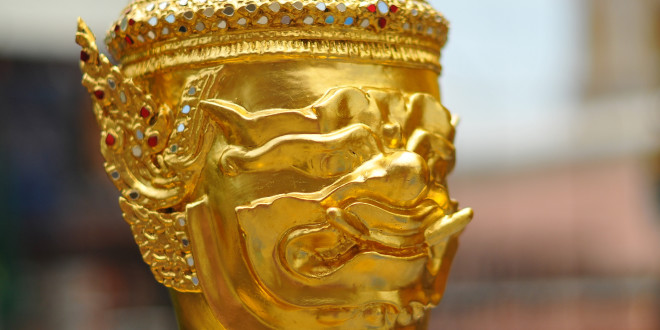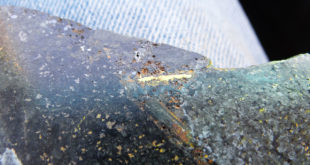As divined by The Economist on September 15th, the overwhelming majority of companies have chosen to include the phrase “due to the events of September 11th” in their quarterly reports to explain away their corporate shrinking profits or growing losses. There is no doubt that the attacks enormously affected sectors such as tourism and air travel, but can they be blamed for telecom losses or flagging computer sales? If so, to how great an extent? It has become almost patriotically fashionable to blame losses on terrorism – but for most businesses not very honest. The stock markets in the face of huge corporate layoffs are clearly in denial – as if the whole world has declared one big force majeure, and that from hereon things will improve. Wall Street hopes for another rate cut and in that expectation the DOW goes up. But it moves on a slowing momentum born of a different time. The few economic indicators these days that are favourable are embraced. “The fundamentals are sound!” Bad news is culled or spun. “Sure they lost money, but they made their numbers”. “Well, we’ve got that outta the way now so things will soon be great!”
The massive and worldwide corporate downsizing we are in the midst of is due to the effects of a near decade of credit binge, exemplified by the dotcom bubble. The binge mentality pervaded everything – money printing, taking on personal debt, impossibly inflated IPO prices, mortgages with nothing down, accepting shares in lieu of cash for equipment, accepting share options in lieu of wages. It started to crack when dot.coms ran out of steam, and got worse due to high energy prices. Then as market sentiment started to turn negative and investors began to bail out of equities, the knock-on effect began like an outwardradiating blast wave that affected suppliers, investors, bankers, and their suppliers, investors and bankers right back up the chain to producers of raw materials. The corporate slump fans out relentlessly from country to country, threatening to encircle the entire planet for the first time in its history. Can it be halted? How bad will it get? Who will fair the worst? From “North American Gold Stocks” by Robert S. Jackson (written 1988):
One other thing needs to be said to correctly describe what the historical record teaches us about free-market prices for gold, namely, that gold’s price, at least over shorter periods of time (a few months to a year), like the stock market, is a leading, rather than a following, indicator. Gold looks ahead towards conditions expected to exist in the future; it does not merely reflect an already realized present. Hence, under free-market conditions, the price of gold reflects an anticipated inflation, or deflation, rather than a presently realized situation.” “When the rate of inflation is increasing, the markets will anticipate further increases and the price of gold may be bid up beyond the prices needed to compensate for an existing inflation.”
If Jackson is right (and he is), then gold should be galloping away, in sync with the burgeoning US money supply, and increasing levels of injected liquidity to bail out corporate America. Instead gold goes down, or sideways. So gold is moving counter-current, and has for some time now. Gold shares on the contrary have been bid up in anticipation of higher gold prices. Assuming that the gold price is manipulated, imagine the titanic forces against which it is straining, like some giant disobedient dog at the lead. Huge amounts of gold must be brought on the market to hold lease rates down. This can’t be sustained indefinitely. We are leading up to a duplication of the very same forces that eventually obliged Richard Nixon to let the price float.
Snapshot One, on the MSNBC’s website today:
http://moneycentral.msn.com/articles/invest/extra/8120.asp
“Gold’s glory gone?
It could well be that the world that sought refuge in gold no longer exists. Today’s global speculators can move hundreds of millions of dollars with the click of a computer mouse. Since gold has to be stored and insured and guarded, it is costly to own, making its portability less of an allure. The tons of gold reputed to be stored in Comex vaults in the lower levels of the World Trade Center are, for now, inaccessible. At the same time, the financial markets were up and running in a week.”
I’m sure that the subtle nuances differentiating paper gold from physical would be lost on this commentator, but disregarding that for the time-being – we have seen gold bashing remarks such as those above reproduced time and time again. So it is both instructive and refreshing to read the following selection of pro-gold articles from India, Russia and Thailand. For obvious reasons I have had to restrict my selection to articles in English. It’s easy to forget sometimes that presently gold demand mostly comes from outside North America and Europe. Though macroeconomic and political events initiated in the West can, and do, have enormous effect on world gold markets, the demand for gold in Eastern countries is deeply culturally ingrained and is not about to turn on a whim. Many cultures see gold not as a choice investment purchase but as a necessity. As the global effects of the economic slowdown come to bear, local stock markets will begin to fall and local banks will fail. These articles show that gold becomes even greater in importance at times of crisis. It is useful to see how Asians – who are largely impervious to US market spin – see gold. For copyright reasons I am providing links to the various newspaper articles rather than reproducing the entire articles. If the links won’t work for you, simply cut and paste them into your browser. I suggest perhaps that you might want to print out my commentary and compare it with the articles.
Cash-Weary Russians Turn to ‘Third Currency’: Gold
St. Petersburg, Russia, October 13, 1998:
http://www.sptimesrussia.com/secur/407/news/gold.htm?716curr
This story was written in the aftermath of the August 17th, 1998 Ruble devaluation. To provide a bit of context: On the 13th August, the Moscow stock market halted trading. It ended the day down 6% – and down 75% for the year. Short term interest rates surged to almost 200%. Long-term Russian bonds fell in half against what they had been two months earlier. Then, the Duma, the lower house of Parliament….went on vacation. The famous meeting at the New York Fed to bail out Long Term Capital Management was September 23, 1998.
Important points: Major banks ran out of gold ingots for sale within 7 days of the devaluation. The gold price in St. Petersburg was running at around $460US when the world price was only about $300US, an incredible $160US (53%) premium! This is what happens when there is a run on gold and it has to be had at almost any price. The article says that gold was illiquid because the banks didn’t want to buy back ingots. This is probably because they were afraid of fraud and lacked the means to assay bar gold. This of course wouldn’t be a problem for bullion coins, which are much more liquid. In any case, undoubtedly there would have been a very brisk underground market for all kinds of gold, and no end of buyers. It is curious that in the crisis Russians turned away from US dollars and towards gold to provide security – due to “paper fatigue”. There are more US dollars in circulation within Russia presently than there are in the United States itself. What will the Russians do with this paper when the dollar takes a tumble?
Investors turning to gold bars: Global tension helps boost bullion sales
Bangkok, Thailand, October 23, 2001 http://www.bangkokpost.com/231001_Business/23Oct2001_biz48.html
Important points: In Thailand, there has historically been a very healthy demand for gold jewellery, and the Thais excel as goldsmiths. This jewellery is typically heavy and clunky, and of 22 carat (75% gold) or more often 24 carat (99.9% pure) purity. Gold that is meant to be worn everyday may be 18 carat. Only a small premium is attached to workmanship. A lot of Thai jewellery is exported to India. An important point is that 10 carat (41.7% gold) or 14 carat (58.5% gold) jewellery (popular in the USA) is very un-popular in Asia. 9 carat gold jewellery (37.5% gold) is popular in Britain, though only gold of 10 carat or higher fineness can be sold in USA. “Gold fill” jewellery, which is made up of a thin sheet of gold compressed onto another metal, usually brass, is considered trash in Asia.
In essence, the gold jewellery market in Asia constitutes a popular and culturally deep-seated way of saving. Jewellery and ornaments are typically only displayed on rare occasions such as wedding celebrations. They are symbols of wealth and power, typically amassed over time and passed down through families. The gold, because it is typically the pure metal, is easily sold if circumstances demand. As a result of the currency crisis and a general distrust of paper money, Thais are now investing in gold. Because the Thai government has instituted a Value Added Tax on gold workmanship, many investors have chosen instead to dispense with jewellery altogether and buy bullion, which is not taxable. A former tax on all gold jewellery by weight was so unpopular it drove the gold business underground and smuggling became widespread. There’s no point in the World Gold Council promoting the use of gold in jewellery, where in Asia, they are already preaching to the converted.
Business Booming at Pawnshops: Parents need cash for new school semester
Bangkok, Thailand, November 3, 1997.
http://scoop.bangkokpost.co.th/bkkpost/1997/november1997/bp971103/0311_news07.html
Important point: When the inflationary crunch comes, and you have been smart enough to put gold aside for a rainy day, that gold can be easily liquidated to pay for the essentials like schooling your children, or to put food on the table.
Asians rushing to safe haven as uncertainty persists: Thais show highest affinity for gold
Bangkok, Thailand, December 30, 1998. http://scoop.bangkokpost.co.th/bkkpost/1998/december1998/bp19981230/301298_business06.html
“Gold in Thailand has been a traditional medium for investment. It ranked highest among countries surveyed as the top asset in the financial portfolios of respondents.”
“Selling of gold took place only as a last resort, with 79% of respondents stating they had sold gold to generate urgent funds for the household. However, 85% said they had no intention of selling more gold during the next six months.”
Important point: Having lived through a paper currency meltdown, the Thais are no “fair weather friends” to gold. It is a fallacy that is very often repeated in the media that aboveground gold stocks are liable to full liquidation, given the right price. Analysts talk of the “massive overhang” in gold. Due to the social stigma implicit in gold liquidation, the reality is that most Asian gold will only be liquidated under severe financial duress. It is in effect: “out of play”. Besides Thailand, other important traditional Asian consumers of gold are Malaysia, Indonesia, Myanmar, Sri Lanka, India, Pakistan, and China. The gold souks (bazaars) of the Arab world, especially those in Dubai are famed for their jewellery. Gold has always been considered important in Arab cultures.
Gold can boost an investor’s portfolio: A safer long-term bet than stocks & bonds
Bangkok, Thailand, February 14, 2001 http://scoop.bangkokpost.co.th/bkkpost/2001/feb2001/bp20010214/140201_business10.html
“Among the limited liquid investments that are common in Thailand, gold is the one that can improve our overall investment portfolio return the most, odd thought it may seem.”
“Last year, while bank deposits yielded only 2-3% after tax and the stock market tumbled by 46%, only bonds and gold could generate satisfactory returns.”
“Most local retail investors are not familiar with bonds. Even though they have become more popular in the past two years, bonds are still mostly held and traded by institutional players like banks, insurance companies, provident funds and mutual funds.”
“But, every retail investor knows how and where to buy and sell gold. It is a common asset familiar to people from all walks of life. It is also universally accepted as a form of payment.”
Important point: An excellent review of the reasons why one should own gold, presented by Ayudhya Jardine Fleming Asset Management.
When nothing glitters, there’s always gold
Mumbai (Bombay), India (undated, sometime after Sept 11th, 2001)
http://www.timesofindia.com/articleshow.asp?catkey=-2128682902&art_id=424530413&sType=1
“When stocks are beaten to a pulp, when bond holders are wringing their hands, when interest rates have crashed, when the speculative bubbles in high-tech stocks have burst, where does one go?”
“Gold, interestingly, is turning out to be the investment of choice. India being one of the largest consumers of gold in the world, (with over 900 tonnes bought annually), analysts state that consumers are making a beeline to shore up on the yellow metal.”
“When assets such as stocks, treasury bills or bonds see an erosion, gold comes in as the saviour, for it can be encashed anytime, anywhere,’ said one gold trader, speaking to this paper on condition of anonymity. He pointed out, ‘Right now, there is a nervousness in the market and a long-drawn battle in the desert may see the price of gold vault over the Re- 5,000 level.’
Important point: It is particularly of note that this has appeared since the events of September 11th, though the article itself is unfortunately undated. Should there be a coup d’etat in Pakistan, or a stepped-up conflict in Kashmir, there could be a headlong rush by Indians into gold.
*****
The author of the MSNBC article talked about gold coins being used by Jews to buy freedom from Nazism. He also talks about the great German inflation of the 1920’s. But by the tone of the article, the author considers these events as remote in history as the sacking of Troy. The MSNBC article ends with the following:
“But the best reason for owning at least some gold stocks is the fact that you’re laughing at the very idea. My editor did, too. Nobody’s out there writing about gold stocks, or publicly recommending them. Just as nobody wanted to be laughed at for recommending the sale of dot-com and technology stocks two years ago. Experience has taught me that just when “everyone” thinks an investment idea is absolutely ridiculous, it’s time to take that idea seriously. The only problem is, you’ll never know how much time it will take before people catch on.”
Judging from the performance of gold funds this year to date, the smart money has already “caught on”. I think that the above articles show that far from a barbarous relic, gold remains uppermost in the financial consciousness of many. These may not be among the perceived “sophisticates” of the investment world – as defined by Wall Street – but they are an extremely potent force, not to be ignored and certainly not to be poked fun at. The world that seeks refuge in gold “still exists” alright. In fact, it is most of planet Earth.
***** Straight Talk on Mining is provided for information purposes only. Nothing herein is to be construed as a recommendation to buy or to sell any particular security or financial instrument. Nothing herein is to be construed as a recommendation to engage in any particular investment strategy or trading strategy.
The investments discussed herein may be unsuitable for investors depending on their specific investment objectives, financial situation, and risk tolerance. Private investors should obtain the advice of a qualified financial advisor before entering into any transaction. Straight Talk on Mining is based on information that is generally available to the public. The sources used are believed to be reliable, but because the information and data that they provide are beyond our control, no representation is made that it is complete or accurate. Staff of Straight Talk on Mining may or may not be invested in the equities mentioned. References to other publications and direct links to external Internet sites are sometimes given. The inclusion of any publication, organization or Internet site herein does not imply any endorsement. Straight Talk on Mining has no control over the content of any Internet site that you may reach through links that are provided, nor can their truth, accuracy, or completeness be vouched for.
Straight Talk on Mining is not a financial services company nor is it affiliated with any financial service company in any jurisdiction.
The author/publisher, Dr. Keith M. Barron, is not a qualified financial advisor and is not acting as such in this publication. The accuracy of any legal term or definitions used herein should be verified with your legal advisor or the appropriate government agency.
 Straight Talk On Mining Insights on mining from economic geologist Dr. Keith Barron.
Straight Talk On Mining Insights on mining from economic geologist Dr. Keith Barron.




